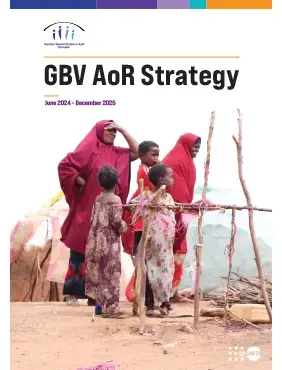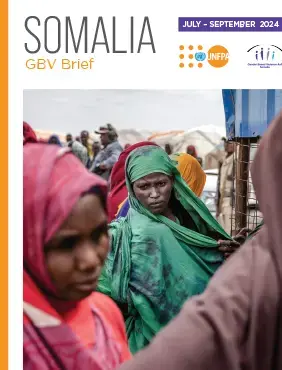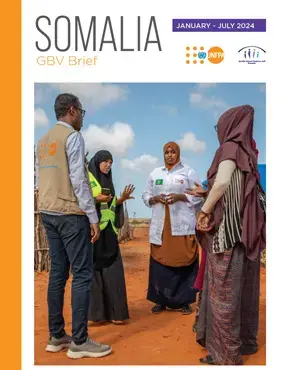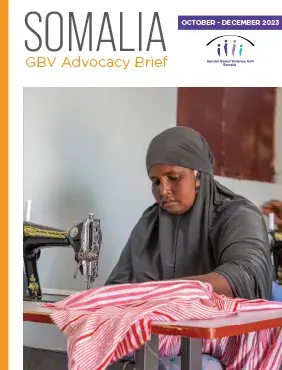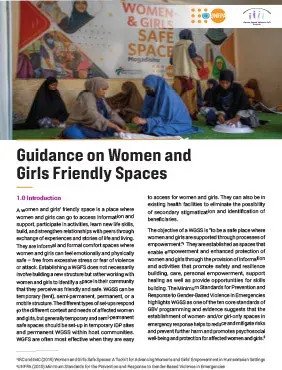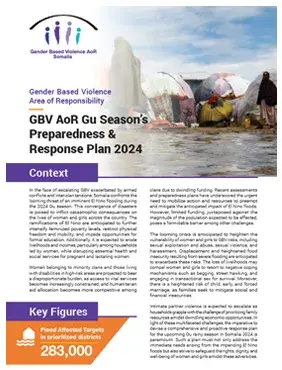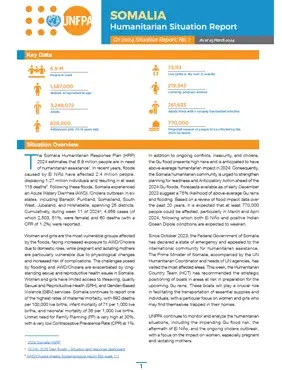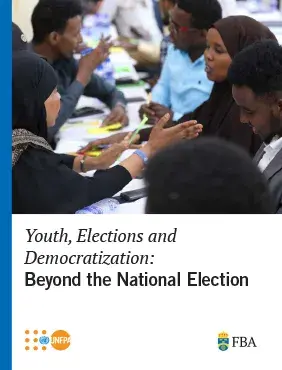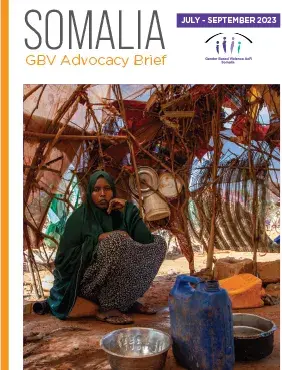Publications
Publications
Publication
GBV AoR Strategy: June 2024 - December 2025
Somalia is experiencing a severe humanitarian crisis driven by prolonged conflict, recurrent droughts, and flooding, which have displaced approximately 3.8 million people, predomin...
Read more
Publication
GBV AoR Brief July – September 2024
In the third quarter of 2024, Somalia experienced a surge in displacements due to inter-clan conflicts over resources like water and grazing land, affecting regions such as Gedo, M...
Read more
Publication
GBV Brief: January-July 2024
In the early months of 2024, Somalia's humanitarian landscape has been significantly shaped by El Nino-induced floods and intensified advocacy for enhanced funding and human resour...
Read more
Publication
GBV Advocacy Brief October-December 2023
During the last quarter of 2023, Somalia witnessed a life time El Niño event that resulted in unprecedented deluge in many parts of Somalia, plunging the country into a myriad of c...
Read more
Publication
Guidance on Women and Girls Friendly Spaces
A women and girls’ friendly space is a place where women and girls can go to access information and support, participate in activities, learn new life skills, build, and stre...
Read more
Situation Report
GBV AoR Gu Season’s Preparedness & Response Plan 2024
Somalia faces a dire situation with escalating gender-based violence (GBV) exacerbated by armed conflicts and inter-clan tensions, compounded by the imminent threat of El...
Read more
Situation Report
Somalia Humanitarian Situation Report: January-March 2024
The Somalia Humanitarian Response Plan (HRP) 2024 highlights the dire situation with 6.9 million people requiring aid, exacerbated by recent floods from El Niño affecting...
Read more
Publication
Youth, Elections and Democratization: Beyond the National Election
Enhancing youth political participation in Somalia necessitates a multifaceted approach rooted in inclusivity and empowerment. This report serves as a testament to the in...
Read more
Publication
GBV Advocacy Brief July-Sept 2023
In the third quarter of 2023, although, Somalia averted the looming famine, due to above average Gu season rainfall, efforts of local communities & authorities and sustained hu...
Read more

